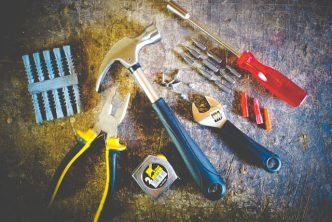The car dealership industry forms an integral cog in the machinery of the automotive market, serving as the critical conduit between automakers and consumers. Potential buyers need to demystify the operations and product offerings of car dealerships, empowering them to make well-informed purchasing decisions.
Table of Contents
The Car Dealership
A car dealership is a commercial entity that retails new or pre-owned cars, typically mediating the transaction between the automaker (or its sales affiliate) and the consumer. The dealership landscape is varied, featuring new car dealerships, pre-owned car dealerships, franchise dealerships with agreements with specific automakers, and independent dealerships not linked to any particular brand.
Car Dealership Products
Car dealerships host an array of custom car accessories tailored to meet diverse consumer requirements. These include:
- New cars: Pristine vehicles that have never been owned or driven, typically delivered straight from the manufacturer.
- Pre-owned cars: Vehicles with a history of ownership that have undergone inspection and refurbishment for resale.
- Car parts and accessories: Many dealerships also vend parts and accessories, ranging from replacement components to enhancements like custom wheels or roof racks.
- Extended warranties: Service contracts that stretch beyond the manufacturer’s warranty, offering added coverage for certain repairs or services.
- Insurance and financing products: Dealerships often facilitate insurance products and financing options, assisting customers in securing loans for their vehicle purchases.
How Car Dealerships Operate
Car dealerships adhere to a business model that encompasses several vital roles and revenue streams. Sales personnel shoulder the primary responsibility of selling vehicles, while Finance & Insurance (F&I) managers deal with financing and insurance products. Besides revenue from vehicle sales, dealerships also profit from service and parts operations and finance and insurance products.

Understanding the Car Buying Process
The car-buying journey consists of several phases, commencing with research and culminating in the final purchase. Customers typically test-drive vehicles, bargain prices, and arrange financing. It’s critical to conduct exhaustive due diligence, comparing various models and prices, and being prepared to negotiate for the best possible deal.
Financing at Car Dealerships
Numerous dealerships offer financing, including proprietary in-house financing options. They often collaborate with a network of lenders to aid customers in securing auto loans. Key aspects of the financing process include interest rates, loan terms, and credit checks. While dealership financing offers convenience, it’s prudent to compare it with alternatives such as a bank or credit union loans.
The Importance of After-Sales Services
After-sales services are paramount for sustaining customer relationships and fostering repeat business. These encompass vehicle maintenance, repairs, and warranty services. Warranties safeguard certain repairs or services for a stipulated period or mileage.
The Digital Evolution in Car Dealerships
Technology is ushering in a revolution in the car dealership industry. Many dealerships now facilitate online car sales, enabling customers to peruse inventory, compare prices, and even finalize purchases online. Digital showrooms and virtual test drives are also gaining traction, heralding the future of the car dealership industry.
Conclusion
Gaining insights into car dealership products (more information – logotech.com) and their operational mechanics is critical for anyone contemplating a car purchase. It empowers informed decision-making, potentially leading to a more gratifying purchasing experience.
Extra Learning Resources
For more information on deciphering car dealership operations, consider exploring online automotive resources, referring to car-buying guides, or soliciting expert advice. Remember, the more informed you are, the better decisions you can make.





